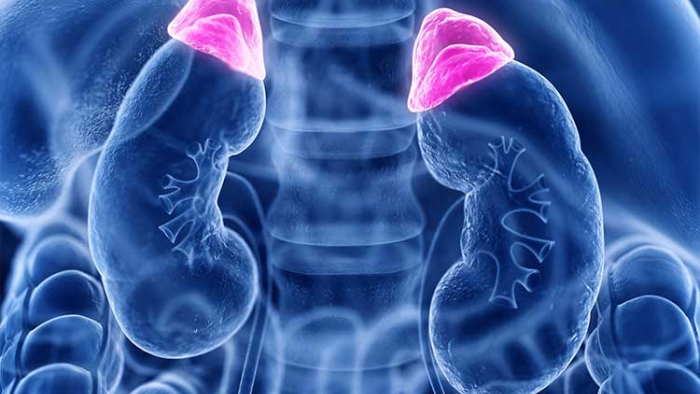
Cortisol is a hormone produced by the adrenal glands and plays an important role in regulating blood pressure, stress response, reducing inflammation, weight management, and blood sugar control. Also known as the "stress hormone," this hormone is released during stressful situations to prepare the body to respond. Cortisol levels fluctuate throughout the day, typically peaking in the morning and declining at night.
How does cortisol work
Cortisol is part of the body's stress response system, which is regulated by the hypothalamic-pituitary-adrenal axis. In stressful situations, the brain sends a signal to the adrenal glands to secrete cortisol. This hormone has several important functions, including
Increasing blood glucose to provide immediate energy
Suppressing the immune system to prevent excessive inflammatory responses
Regulating blood pressure and the metabolism of fats, proteins, and carbohydrates
Helping with memory function and concentration
Common symptoms associated with abnormal cortisol levels
. High cortisol levels: Weight gain, especially in the abdomen and face, high blood pressure, high blood sugar, muscle weakness, thinning skin, and slow wound healing
. Low cortisol levels: Extreme fatigue, loss of appetite, low blood pressure, and darkening of the skin
Common symptoms of changes in cortisol levels
Higher or lower than normal cortisol levels can have negative effects on the body
Symptoms of high cortisol (hypercortisolism). If cortisol levels remain high for a long time, you may develop Cushing's syndrome (a rare disorder caused by overproduction of cortisol by the adrenal glands and may be caused by pituitary tumors with long-term use of glucocorticoid medications). Some symptoms include weight gain, especially in the abdomen and face (moon face).
High blood pressure
High blood sugar and the possibility of developing type 2 diabetes
Muscle weakness and muscle wasting
Thinning skin and slow healing of wounds
Low bone density and increased risk of osteoporosis
Insomnia and sleep disorders
Reduced ability of the body to fight infections
Mood changes such as anxiety, depression and irritability
Excessive hair growth in women and irregular menstrual periods
Chronic stress
Symptoms of low cortisol (hypocortisolism)
If your body can't produce enough cortisol, you may develop Addison's disease. Symptoms include
Extreme fatigue and chronic weakness
Weight loss and loss of appetite
Low blood pressure, especially when standing (feeling dizzy)
Nausea, vomiting, and abdominal pain
Increased skin discoloration in various areas of the body
Low blood sugar and a craving for salt
Possible causes of high cortisol
Chronic stress: Several reasons can lead to abnormally high cortisol levels, including: work pressure, family problems, or a stressful lifestyle
Adrenal gland disorders: Adrenal gland tumors can produce excess cortisol
Cushing's disease: Excessive cortisol levels that may be caused by a tumor in the pituitary gland
Long-term use of corticosteroid medications: Such as prednisone, which is prescribed for inflammatory and autoimmune diseases
Sleep apnea: Research has shown that people with sleep apnea have higher levels of cortisol
Obesity and unhealthy lifestyle: Poor diet, lack of exercise, and high sugar intake can lead to elevated cortisol levels
Diagnosing high cortisol
Blood test: To measure cortisol levels at different times of the day
24hour urine test: To determine how much cortisol is excreted during the day
Overnight saliva test: Cortisol naturally decreases at night. If it is high, it is a sign of a problem
Dexamethasone suppression test: In this test, dexamethasone (a steroid drug) is given to see if cortisol decreases
Treating and controlling high cortisol
Treatment for high cortisol varies depending on the cause
. Lifestyle changes and natural ways to control cortisol
. Stress management: Use relaxation techniques such as meditation, yoga, deep breathing
. Regular exercise: Gentle exercise such as walking and swimming can reduce cortisol
. Adequate sleep: At least 7 to 9 hours of quality sleep per night is essential for regulating hormones
. Healthy diet: Consume foods rich in omega-3 (fish, walnuts, flaxseed), Vit C, oranges, bell peppers, magnesium, nuts and dark chocolate
. Reduce caffeine and sugar intake: Excessive consumption of coffee, energy drinks and processed foods can increase cortisol levels
. Maintain positive social relationships: Having strong supportive and social connections reduces stress
. Medical treatments: In cases such as Cushing's syndrome, medical or surgical interventions may be required
Diagnosis of elevated cortisol
Doctors usually measure cortisol levels using blood, urine, or saliva tests. These tests can be done at different times of the day to
account for natural cortisol fluctuations
Resources
https://my.clevelandclinic.org/health/articles/22187-cortisol
https://www.alta-klinik.de/ratgeber/cortisol-zu-hoch/
https://www.webmd.com/a-to-z-guides/what-is-cortisol